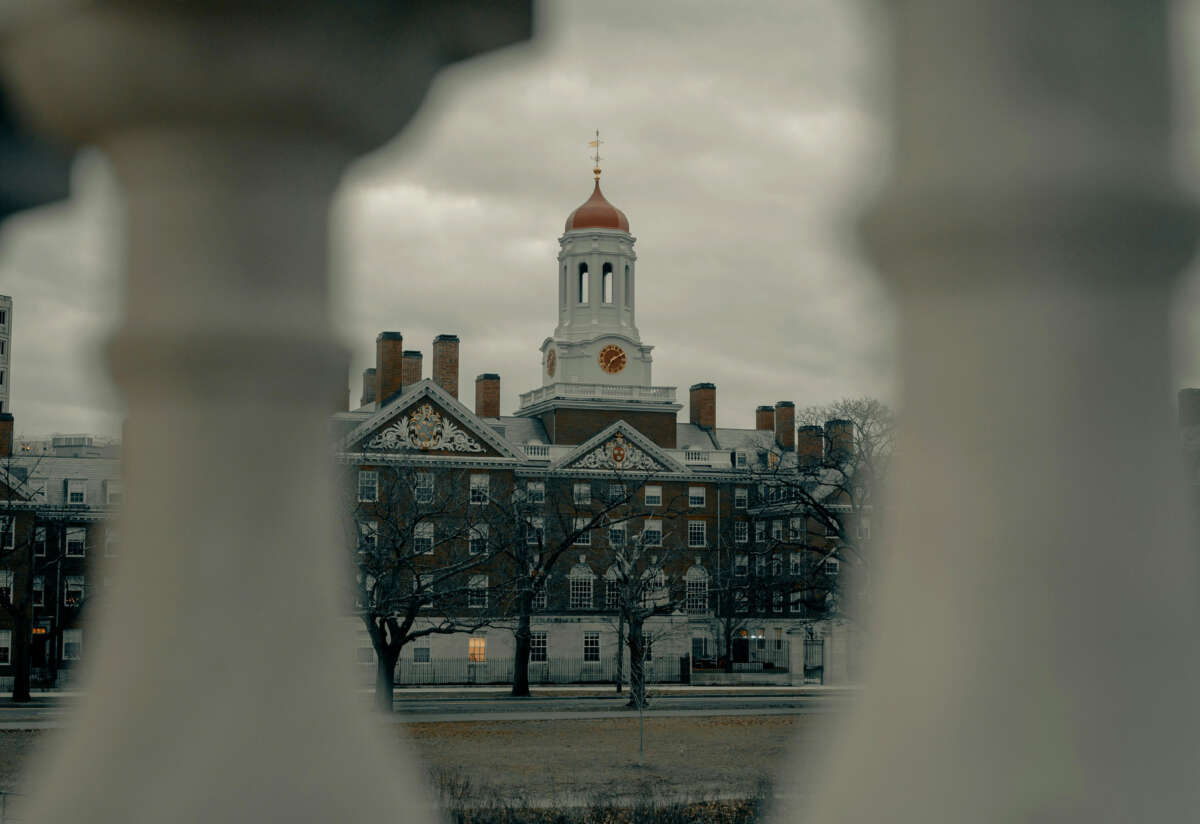More than a dozen Palestinian and Muslim students at Harvard University filed a federal civil rights complaint against the university with the Department of Education’s Office for Civil Rights, demanding an immediate investigation into the school’s failure to protect them from discrimination.
“On top of worrying about my family’s safety in Palestine, I’m living in fear of being attacked while walking to class,” one of the students said in a statement. “No student should have to live like this.”
The students, who are represented by the Muslim Legal Fund of America (MLFA) have asserted that the university has failed to protect them from “rampant harassment and racist attacks including doxxing, stalking and assault simply for being Palestinian, Muslim and supporters of Palestinian rights.” Some students have been assaulted for wearing keffiyehs, a traditional Palestinian scarf, while others have been stalked, had objects thrown at them on campus, and endured repeated doxxing and threats.
“As a Palestinian student at Harvard, the racism and harassment I have faced is shocking, terrifying, and outrageous,” a student said. “We have been chased, spat at, stalked, and hounded by doxxing trucks on campus, and even at our families’ homes.”
Since Israel began its genocidal military campaign against Gaza in October, campaigns to suppress pro-Palestinian student voices on U.S. college campuses have drastically escalated.
In November, three Palestinian students attending Brown University, Haverford College, and Trinity College were shot and wounded in a racially-motivated crime in Burlington, Vermont, likely for wearing keffiyehs and speaking Arabic. And earlier this month, students at Columbia University protesting Israel’s genocide in Gaza were attacked with an Israeli-developed chemical weapon called Skunk, which has been used by the Israel Defense Forces in East Jerusalem. While many students were hospitalized for inhaling the chemical, Columbia University administration did not respond to the incident for three days and have not yet academically suspended those responsible.
In addition to facing physical violence, university students nationwide have also been subject to doxxing by Zionists. In fact, a doxxing truck has visited multiple college campuses, including Harvard, displaying the faces and names of students who signed letters demanding that their universities cut ties with Israel with the caption “Antisemites.”
“Harvard administrators repeatedly denied our requests for protection, abandoning us while a hostile, hateful environment ballooned on campus,” another student said in the statement. “We’re calling on the Department of Education to do what Harvard refused to do — truly investigate what happened to us, hear our voices, and bring accountability so that no other student has to experience the racism and harassment we did.”
The students who were targeted by the doxxing truck have since had their names and faces posted online along with personal details, such as their addresses, which have also opened up their families to harassment.
“I definitely have not felt safe…. on multiple levels,” one of the students targeted by the doxxing truck told Teen Vogue in October. “I think, more than ever, I’ve been reminded again and again of what being Muslim means in the world, with what’s going on in Gaza and Palestine; what it means in this country, with some of the Islamophobic attacks that have happened over the past couple of days; but also, what it means to be a marginalized person on this campus.”
In addition to doxxing, pro-Palestine college students have also experienced adverse actions from their universities, such as the suspension of student groups and arrests, and had job offers rescinded for protesting against the genocide in Gaza.
“Instead of providing protection or resources, Harvard responded to the students’ requests for help with closed doors, and in some cases threats — by those in positions of power — to limit or retract the students’ future academic opportunities,” the MLFA said in a statement.
The MLFA believes that Harvard’s inaction may violate Title VI of the Civil Rights Act of 1964, which assures that students receive equal treatment and protection, and is urging the Office of Civil Rights to open an investigation into the university.
Trump is silencing political dissent. We appeal for your support.
Progressive nonprofits are the latest target caught in Trump’s crosshairs. With the aim of eliminating political opposition, Trump and his sycophants are working to curb government funding, constrain private foundations, and even cut tax-exempt status from organizations he dislikes.
We’re concerned, because Truthout is not immune to such bad-faith attacks.
We can only resist Trump’s attacks by cultivating a strong base of support. The right-wing mediasphere is funded comfortably by billionaire owners and venture capitalist philanthropists. At Truthout, we have you.
Truthout has launched a fundraiser, and we have only 24 hours left to raise $15,000. Please take a meaningful action in the fight against authoritarianism: make a one-time or monthly donation to Truthout. If you have the means, please dig deep.
